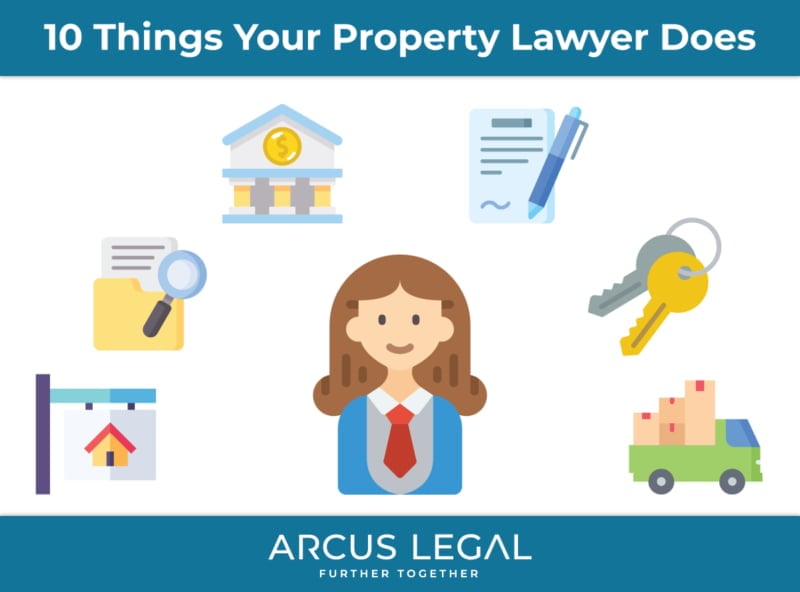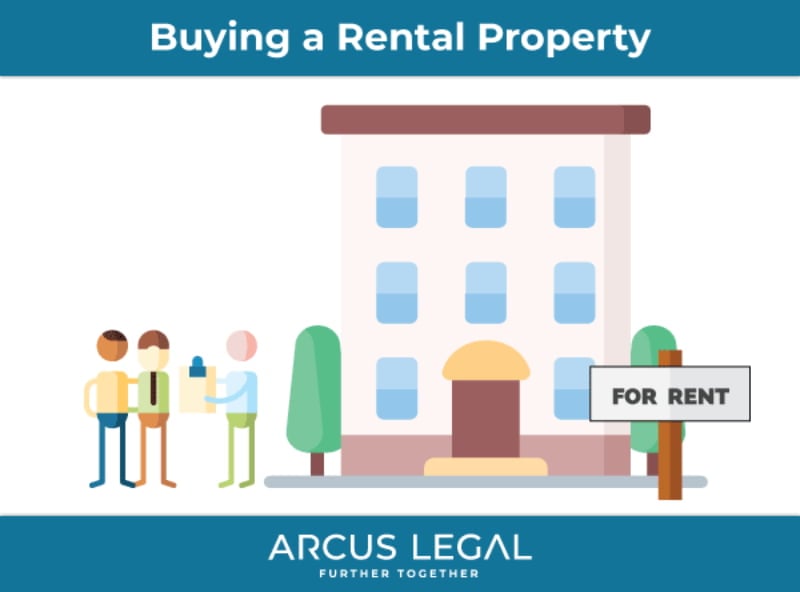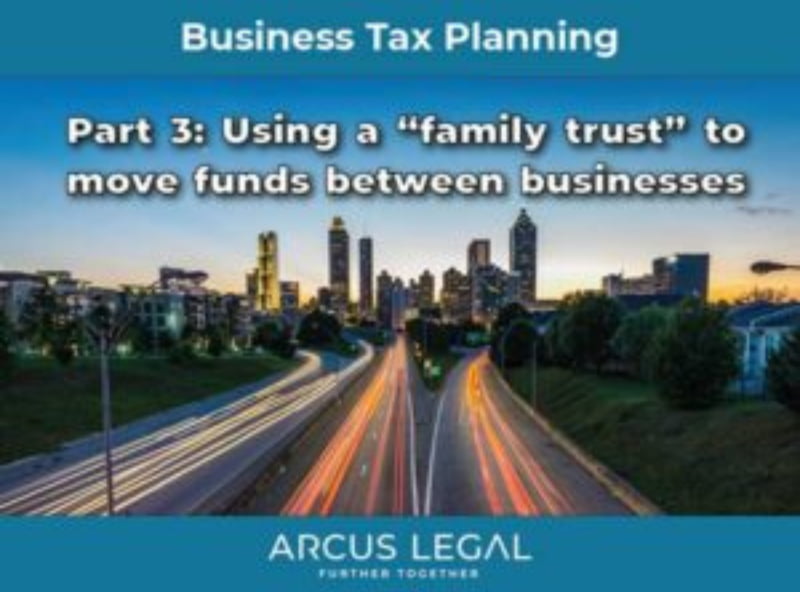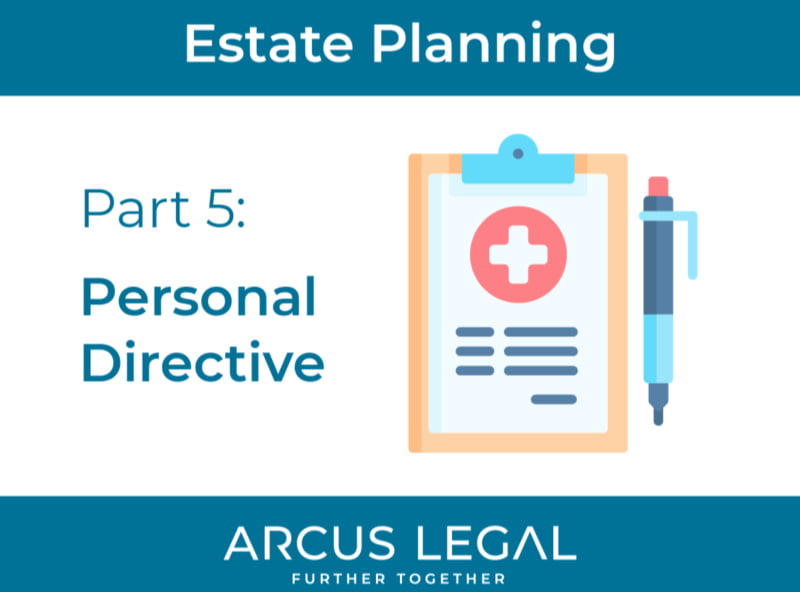
Arcus Legal welcomes Mel Freeland as our newest Corporate Tax Paralegal. Mel joins us with over seven years’ experience working in corporate law. She has lived in Nova Scotia for most of her life and is looking forward to working with local small business owners. When not at work, she enjoys going for walks, listening to podcasts, and hanging out with her animal friends Dexter the cat (not to be confused Arcus Legal’s Co-Chief Canine Officer) and Morty the Akita (and his human).

When you purchase a home, you must hire a lawyer to carry out the transaction, but you may be left wondering what you are paying them to do. Below is an overview of what your property lawyer does for you.

Diving into the world of being a landlord and owning rental properties can be appealing. Online articles, YouTube videos, and television can make it out to be an easy way to earn passive income. However, it is also a significant responsibility to supply a home to a person or family. No matter the length of your rental, there are certain obligations that arise once you take on the responsibility of becoming a landlord. Prior to investing in a rental property ensure you consider the length of rental you will be providing, and know the relevant law to avoid future disappointment.

A family trust can serve as a “highway” to move funds between your active business corporation and your other corporations. Trusts are very useful in succession planning and for funding an investment corporation or property corporation.
When your business has settled, is profitable, and you no longer need massive capital injections to grow the business, you should consider establishing a family trust as part of a tax efficient corporate structure. Contact our Business Tax Planning Team to learn how.

If you are planning on selling your business in the future, you should be aware of the Lifetime Capital Gains Exemption on the sale of active small businesses.
When you sell a capital asset, such as shares of a company, that is usually taxed as a capital gain. However, when you sell shares of an active business, you may qualify for a tax incentive called the Lifetime Capital Gains Exemption, which allows you to claim almost $900,000 of the capital gain exempt from taxes. That means you can pocket up to $900,000 tax-free (although the alternative minimum tax can apply).

Owners of family businesses will gain new tax advantages from a bill that has just passed and is expected to come into effect shortly.
Currently, selling your business to a complete stranger gives you tax benefits that you would lose if you sold to a family member. Bill C-208 extends these benefits to cases where shares in an active business are transferred to a company that is owned by a child, grandchild, or sibling. The sale of shares would now be treated as a capital gain instead of a dividend, meaning you would be taxed at a lower rate and potentially be eligible for the lifetime capital gains tax exemption.… [Read more]

When your business is thriving, and you make more money than needed to cover your personal expenses, this is the time to consider incorporating your business (transferring your business to a company).
From a purely tax perspective, you do not want to be taxed on all your business income in your personal name. You are taxed more than 25% on the income from your business (It gets higher as you fall into higher income brackets), whereas your corporation will only be taxed 12% for the income earned in the corporation. That is a massive difference in dollars available for you to expand your business.… [Read more]

Alter Ego Trusts (AET) and Joint Partner Trusts (JPT) are a more complex method of estate planning, but can be well-suited to certain situations. You must be over the age of 65 years to consider these methods of planning.
AET and JPT both are often used as a method of probate avoidance. However, these trusts also are more private than a traditional Will, because your Will is publicly available once your executor files for probate. Where there is no probate, your distribution is not made publicly available.
The downside is that AET and JPT are more expensive and complicated to set up and maintain.… [Read more]

When going through the estate planning process, an important aspect is appointing a guardian for your minor children. A guardian may be needed for your children should you die or lose capacity. The appointment of guardianship is accomplished by a document that is outside the Will because it could be needed before your death if you become ill.
Any person under the age of 19 in Nova Scotia is considered a minor. If you are a parent it is important to turn your mind to who you would like your child to be cared for if you become incapable of caring for them.… [Read more]

A Personal Care Directive (“PD”) is where you delegate your decision-making authority regarding your personal care and your medical decisions to a trusted loved one. The PD applies only during your life, and only applies once your capacity has been assessed and you are deemed incapable of making your own personal care and medical decisions.
The person you appoint under your PD is called your Delegate. Your Delegate is usually a trusted family member such as a spouse, sibling, or adult child.
Once you appoint your Delegate, speak to them about your wishes and philosophy surrounding your personal and end of life care.… [Read more]